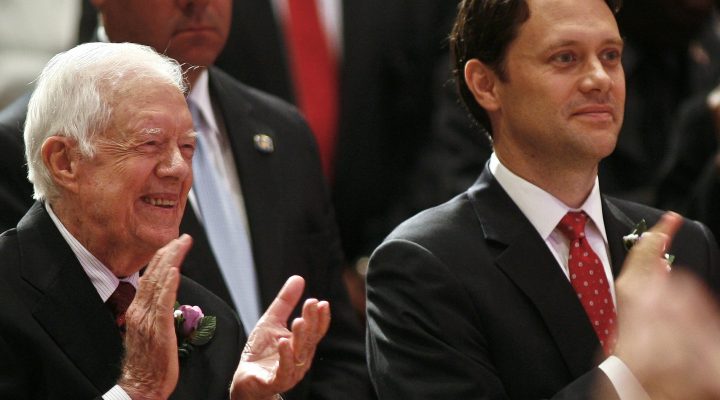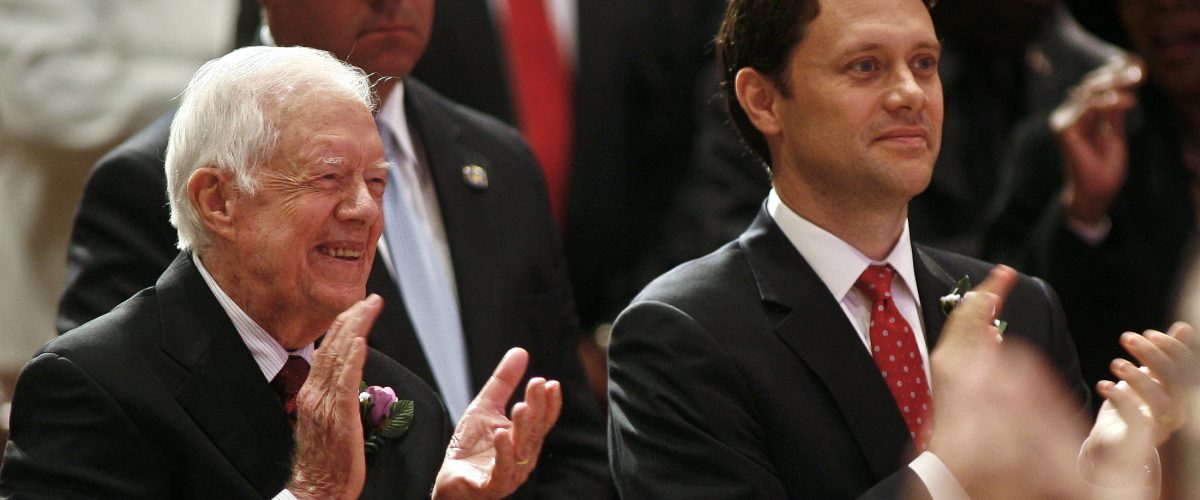We’re all amazed that President Carter has been on hospice for so long. I know this was an intentional decision on his part. What kind of response have he and the family gotten to his public praise for hospice?
His faith always has been central to who he is, and there is a part of the faith journey you can only live at the very end. This time in his life has reminded him — and all of us — that we are not in charge, and there are things about the spirit that are unknowable.
So, I know being in hospice for more than a year was not part of any plan for him. But both my grandparents chose to publicly acknowledge when they entered hospice in hopes it would help other families open a dialogue. And we have been gratified by the response we have gotten from across the world.
Since Mrs. Carter’s passing, how have things changed with the family?
Of course, we all miss her, but we all know that she embodied a life well lived. We were so gratified by the outpouring of love and support for her as we celebrated her life. In fact, because of that outpouring, we were truly able to make her passing nothing but a celebration. That is a wonderful blessing. We are all inspired by her legacy.
I’m sure everyone has been thinking and preparing for the legacy ideas they will carry forward from Jimmy and Rosalynn’s lives. What are some things you’re already thinking about as legacies?
Their legacy is one we share with the world, and it is incredibly gratifying to see so many people doing what they can with what they have to help the most marginalized people in the world. We at The Carter Center continue to carry on their enormous efforts for peace and health, including a robust mental health program started by my grandmother.
Our organization has 3,000 employees, most in Africa, and is just one group continuing to carry out the legacy daily. In addition, the Rosalynn Carter Institute’s work supports caregivers. Also, I am currently working with a friend of mine (Grammy-winner Kabir Sehgal) and Maranatha Baptist Church in Plains to get my grandfather’s last couple of Sunday school lessons released to a wider audience. As you know, faith has been one of the most important aspects of their lives, and it is exciting to share his teaching with a new generation. A significant portion of the proceeds will go to support Maranatha, the church they love so much.
How have your grandparents shaped your own view of the world, of faith, politics and people?
“You can reach the pinnacle of power and still keep your integrity and honesty and your faith.”
For me, my grandparents really demonstrate the power of faith and how that grounds them. They are from a small town. They never forgot who they are, and they never really changed, despite all the incredible success they achieved and the power they wielded. That shows me that — no matter what we all see in our current politics — you can be a good person and succeed in our politics, you can reach the pinnacle of power and still keep your integrity and honesty and your faith. They really give me hope.
How did you become the family spokesperson?
My work with The Carter Center has me in touch with media regularly, so sometimes, it happens to be that I am the one on camera. That said, our family is close, and I am happy to do anything that makes this time easier for my dad, uncles and aunt.
It has been four decades since your grandfather left public office. Why do you think he continues to have such a lasting influence?
Because he continues to care. Retirement isn’t something that ever came easy to him, and for 95 years, he traveled around the world doing the best he could to make a difference for some of the world’s most forgotten people. He genuinely believes we are all equal and should do what we can to lift the voices of those who aren’t heard.
What have you learned from your grandfather regarding race and equality for all people?
When my grandfather was elected governor of Georgia in 1970, he announced that “the time for racial discrimination is over.” Unfortunately, he couldn’t give that same speech today. But he always has put equality and respect at the center of his philosophy.
He believes in his heart that all of us are created in the image of God and, therefore, that we must treat each other with all the respect that implies. His life’s work was working to eliminate racial discrimination, to respect human rights, to build up the lives of the more marginalized people in the world.
In my view, this is who he is: Someone who understands that every human deserves his love and respect.


